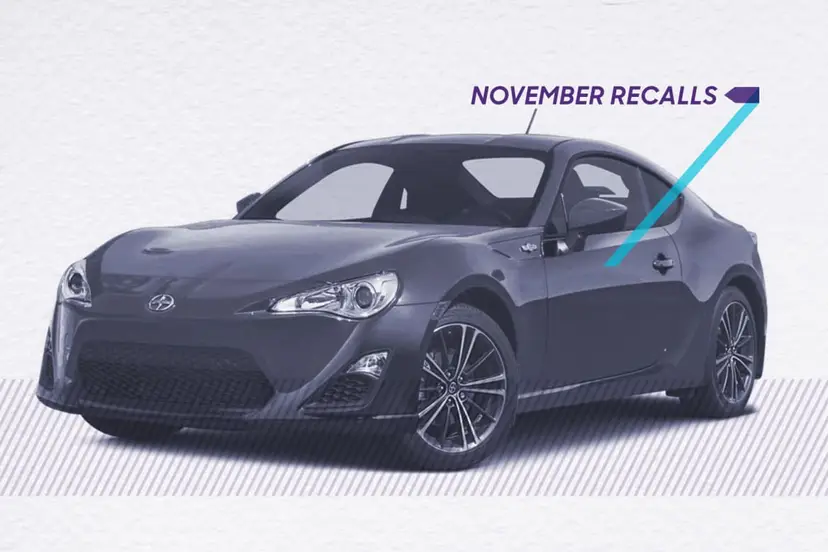
After a hiatus of three model years, a diesel engine has returned to the BMW 3 Series for 2014. The break coincided with the rollout of a new generation of 3 Series cars, which has claimed the sedan and wagon. New versions of the coupe and convertible have also debuted, now under a new 4 Series umbrella.
The 2014 BMW 328d clean-diesel does a great job of delivering both excellent fuel economy and the BMW driving experience, but it sacrifices some in-cabin tranquility.
Efficiency is the best reason for automakers to offer — and consumers to consider — diesel passenger cars, which are now as clean as their gasoline-powered counterparts. BMW is among the primarily German automakers that have marketed diesels in the U.S. in the past, and like the movement as a whole, BMW hasn’t always made the most of it.
An earlier diesel 3 Series that was sold through the 2011 model year, the 335d sedan, got an EPA-estimated 23/36/27 mpg city/highway/combined, which certainly improved on the regular 328i’s 22 mpg combined, but it came nowhere near the new 328d sedan: The 2014 gets an EPA-estimated 32/45/37 mpg with rear-wheel drive. The all-wheel-drive (xDrive) sedan and a wagon (the latter is not available with rear-wheel drive) are rated 31/43/35 mpg.
How It Drives
We tested a 328d wagon and found the experience very close to that of the gas-powered 328i, which won our Luxury Sport Sedan Challenge last year for its combination of acceleration, efficiency, braking, roominess and more. As you might expect from a diesel engine, the 328d is quick off the line, but its overall zero-to-60 mph time of roughly 7.4 seconds turns out to be slower than the 328i, which can do it in less than 6 seconds with the eight-speed automatic transmission. The diesel’s acceleration is closer to that of the entry-level gas-powered 320i sedan, which hits 60 mph in an estimated 7.1 seconds but is rated 9 mpg worse in combined driving.
The 328d shares the 328i’s handling characteristics, too: precise steering with decent but not exceptional feedback, and good dynamics overall. It felt a bit nose-heavy to me, but the specs suggest the “d” and “i” are practically the same, even in overall curb weight. The all-wheel drive has a rear bias, so it’s easy to overcome the slight understeer.
The similarity between the 328i and 328d says as much about the gas version as the diesel. Both have 2.0-liter four-cylinder engines and turbochargers. Even so, in the old days a gas turbo-four of this size would have been a dog, but thanks to direct injection and the eight-speed automatic, the 328i is sprightly off the line, with no consequential turbo lag. Its horsepower rating is 240 hp versus the diesel’s 180 hp, and its torque peak is 255 pounds-feet versus the diesel’s 280 pounds-feet.
Frankly, the gas drivetrain’s performance and respectable 35 mpg combined (in the wagon) take away some of the diesel variant’s advantage in drivability and efficiency. The days when diesel fuel was cheaper than regular gas seem to be gone for good, but bear in mind that the alternative for the 3 Series, as in most luxury models, is premium gasoline, not regular. As I write this, the national average cost of diesel fuel is $3.98 and premium gas is $4.05 per gallon. For motorists who want higher efficiency, not unlike a hybrid’s, but without the associated awkward acceleration and braking, diesel is a good alternative, especially for those who do a lot of highway driving. First off, diesels excel at highway speeds, where most hybrids are less efficient, and their range on a tank of fuel is impressive. Also, there are plenty of diesel filling stations on interstates because that’s where the trucks are.
To that end, note one drawback I’ve encountered as the owner of an old diesel sedan: If a true truck stop is your only option, sometimes you have to wait for a tractor-trailer whose large fuel tanks take longer to fill. You might also discover that diesel fuel tends to linger, on the ground and sometimes on a fuel-pump nozzle. Unlike gasoline, which evaporates, diesel is a light oil. If a previous driver overfills and spills, you can easily get the fuel on your hands or shoes and track it into the car, where it can remain on the floor mats — along with its distinctive odor. I keep disposable nitrile mechanic’s gloves in my car (in the glove box, appropriately) for fueling just in case. I haven’t resorted to shoe covering, however. There are limits … .
Interior
Again, the 328d’s interior is essentially the same as the gas-powered version’s, offering Luxury Line, Sport Line and M Sport Line trim levels, in the form of option packages. Of the various choices, I found only the base trim level’s interior treatment underwhelming.
One difference between the gas and diesel models — and a big one — is the noise level. Make no mistake: Today’s clean turbo-diesels are quieter than old ones were, along with being smokeless and nearly odorless, but they sound different (and typically still louder) than comparable gas-powered engines. That doesn’t mean the engine noise has to be heard inside the car. In the 328d, it is. A lot. It surprised each of our editors who drove the car. Ironically, the 328i gas engine at idle sounds a little like a diesel, and you occasionally hear that inside, but the actual diesel is also audible when accelerating and even when cruising. Each driver will have to determine if it’s too loud, but our suspicion is the average luxury buyer, one who’s trying to decide between the gas and diesel versions, won’t go for this.
In my review of the redesigned 328i and 335i (see it here) I noted how dreadfully intrusive both cars’ automatic stop/start feature was. Diesel engines have higher compression ratios that make them shake more when you start and stop them; I’ve experienced a robust shake when turning off clean-diesel versions of Volkswagens and even Mercedes-Benz. I had low expectations when I experienced my first-ever diesel stop/start feature in the 328d, but was surprised to find it no worse than the gas versions. Unfortunately, this again says as much about the gas versions as the diesel. BMW kindly puts the defeat button for this feature immediately above the start button so you can habitually disable it if you please.
Though it’s almost 4 inches shorter than the sedan from bumper to bumper and has 2 inches less wheelbase, the wagon’s interior dimensions and amenities are essentially the same as the sedan’s, including backseat legroom. Fortunately, the 3 Series also has generous headroom to start, because the panoramic moonroof, which is standard on the wagon, diminishes front-seat headroom by about 2 inches. Even with the moonroof, rear headroom remains better than the sedan’s by a few tenths of an inch.
Ergonomics & Electronics
The stereo and ventilation controls that are relegated to buttons on the dashboard are blissfully simply arrayed. Many other features are incorporated into the iDrive system and its dashtop display. The learning curve is a bit steep, but once you get the hang of it, this system isn’t bad. Though I prefer touch-screens, BMW does a good job of positioning the controller where it’s easily reached on the center console, and the display is up high, close to the driver’s line of sight.
I’ve met BMW and Mini owners who are enthusiastic about the SiriusXM satellite radio interface, mainly because it shows what’s playing on stations you’re not listening to. It reduces channel-hopping … or does it promote it?
This latest iDrive iteration incorporates a touch-pad atop the multifunction controller knob that lets you draw letters and numbers with your finger, which the computer recognizes and confirms visually and audibly. It’s another way to enter, say, an address for the navigation system. Pretty neat. I found it to be faster than rotating the knob to select characters from the alphabet. I question how valuable the touch-pad interface will prove to be over time, however. In my experience, once people “get over” their car’s nifty technology, such as voice-recognition, they stop using it and revert to conventional buttons, dials, touch-screens or what-have-they.
BMW offers an optional head-up display that presents a variety of helpful information, including speed, on the windshield, but unfortunately it becomes virtually invisible if you wear polarized sunglasses — a common problem with this technology, though some brands have solved it.
Cargo & Storage
With 13 cubic feet of cargo volume, the BMW 3 Series sedan has one of the most accommodating trunks in its class. With the exception of the 320i, a 40/20/40-split folding backseat is standard. The wagon adds all the advantages of a hatchback. I and my colleagues are big fans of wagons (see Papa Dave’s examination of the 328d here), and in this we clearly stand apart from most American consumers, who prefer something that looks like an SUV even if a wagon matches it in interior volume, capabilities and everything else. BMW was among the first to determine this when its first SUV, the X5, outsold the 5 Series wagon 30 to 1 in the U.S. The company has since followed by rolling out the X3 and X1 SUVs — the latter of which has just 3 cubic feet more maximum cargo volume than the 3 Series wagon, which comes in at 53 cubic feet. (See the wagon’s specs side-by-side with the X1 and X3 here.)
The main differences between the wagon and an SUV include the wagon’s lower load height, which some will view as an advantage and some a disadvantage. The cargo area itself is also shorter from floor to ceiling than you’ll find in the SUV body style. Otherwise, our wagon had the same kind of power liftgate and versatile 40/20/40-split folding backseat you find in SUVs, and even a retractable net that can span between the seatback and ceiling to cordon off the cargo area from the occupants. However, I admit my wagon advocacy loses steam when you compare its price against that of the X1 and X3, which I’ll do below.
Safety
In Insurance Institute for Highway Safety crash tests, the 3 Series earned the best score, good, in all tests except the new small-overlap frontal crash, where it earned a rating of marginal. Though disappointing, the marginal score in this test is shared by three other 2014 models in the BMW’s class. One model had a rating of poor, two got the rating of acceptable and three were rated good (as of publication).
A backup camera comes in the optional Driver Assistance Package. Additional safety features include blind spot detection, lane departure warning, side/top-view cameras and proximity sensors, plus low-speed forward collision warning, which come in a Driver Assistance Plus option package.
The BMW Assist mobile accident-notification system is standard in the 3 Series. See a list of the standard safety features here.
Value in Its Class
Value, especially among luxury products, is often in the eye of the beholder — or, in this case, the driver. Though it isn’t bargain-priced, we concluded that the 328i sedan in our Challenge was indeed a value because of its strong overall performance and amenities. The diesel engine adds another level of value in ownership costs thanks to its high mileage and a minimal difference between diesel fuel and premium gas pricing. Our 328d wagon consistently got between 32 and 35 mpg in combined driving.
The upfront cost, however, is greater: At $39,525 to start (all prices include destination charges), the 328d rear-drive sedan is only $1,300 more than the gas-powered 328i, but a substantial $5,850 more than the 320i. If you want an eco-friendly car and need to be convinced the 328d is worth the extra cash, look no further than BMW’s own ActiveHybrid3 — the hybrid version of the 3 Series sedan. It starts at $50,825 and gets an EPA-estimated 25/33/28 mpg. If there’s a point to this model, apart from making the diesel look like a bargain, I just don’t see it.
Other competitors are few. Though Audi has spoken of a TDI clean-diesel version of the 3 Series Sedan’s rival, the A4, one has yet to materialize in the U.S. market. Acura ILX hybrid? Too cheap. Infiniti Q50 hybrid? More expensive and less efficient. At $40,410, the Lexus ES300h hybrid is at least priced close to the 328d and gets an estimated 40/39/40 mpg, but its driving experience — as a hybrid and a front-wheel-drive Lexus — is entirely different. If you don’t mind the engine noise, the 328d seems the best choice.
As for the wagon, I wish I could report more advantages. To start, the wagon adds $2,350 to the cost of the 328d sedan with xDrive. One could argue it’s worth the difference, but if you want a BMW with a liftgate rather than a trunk, the X1 starts $8,850 less than the 3 Series wagon and the X3 is $1,650 less. In the world in which I want to live, there’s a penalty — not a discount — for image weenies who don’t want to be seen in a “station wagon.” In the real world, the weenies are winning.
| Send Joe an email |

































